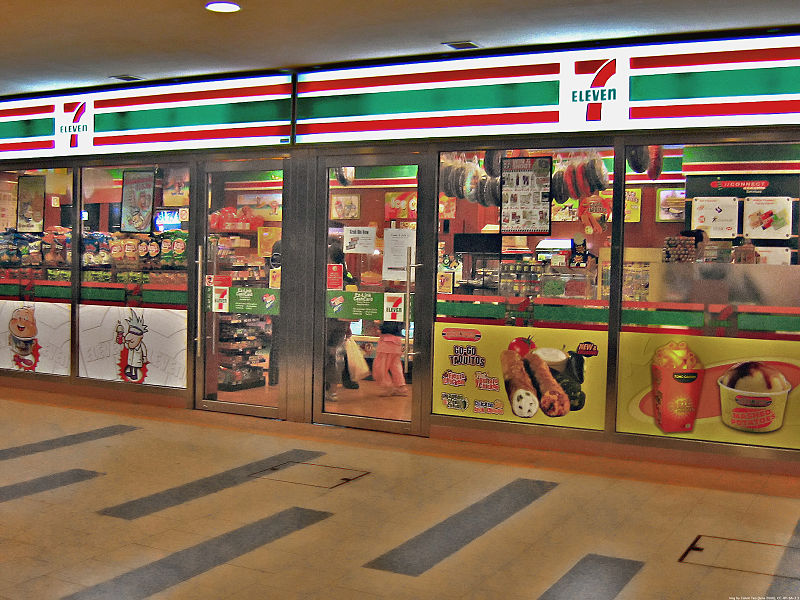100 Facts About The Future
Monday, March 12, 2012
5. Paper money ceases to exist.
No one pays with paper money any longer. All money is transferred electronically via personal identification chips. There are still many people who collect paper money, but no stores will accept it. This reduces the cost of transactions. For example, the government doesn't actually have to waste money by printing money. They simply issue money to extremely tightly regulated financial institutions called banks.
Email question about the future.
Hey! Long time reader, first time writer. Just a quick question: Do the machines finally rebel? And if so, do you think it would do me any good to get in good with my toaster now? Thanks. -Tim
Hello Tim,Thank you for the question. The machines do not rebel, but they do develop programs that track human emotions and mimic them. It feels as though machines can think and feel, however, they still can not truly exceed the bounds of their programs. People have designed emotion sensing machines for evil...with the intention of kill others. Last year, over 2k people were killed by rogue programmed machines, but this seems more the fault of humans than machines.Also worth nothing, many nations sign robot bills of rights to prevent their abuse.
Hello Tim,Thank you for the question. The machines do not rebel, but they do develop programs that track human emotions and mimic them. It feels as though machines can think and feel, however, they still can not truly exceed the bounds of their programs. People have designed emotion sensing machines for evil...with the intention of kill others. Last year, over 2k people were killed by rogue programmed machines, but this seems more the fault of humans than machines.Also worth nothing, many nations sign robot bills of rights to prevent their abuse.
Saturday, March 3, 2012
Email Question About the Future.
4....7-Eleven Becomes Extremely Popular.
7-Eleven becomes about 10 times more popular than present day starbucks. 7-Eleven is currently extremely popular in Japan with almost 13k stores existing in present day Japan. Much like these stores in Japan, 7-Elevens of the future are stocked with electronics, a larger selection of food, fresh fruits and vegetables, and are used to charge our monetized automatic payment chips. These futuristic 7-Elevens serve the increasingly large lower middle class population that exists in the future. They also contain pharmacies where "strength pills" and other medication are sold to those who need an extra boost. These pills are taken daily by most people, though I am not exactly sure what they contain.
3. Cars Drive Themselves
In the future, it is very hard to get a license to drive a car, that is because all driving is automated. This is much safer and car accidents rarely happen at all. This has lead to car sharing programs because people no longer need multiple cars. My car can now drop me off at work, and then drive back to my house by itself and pick my wife up and drive her to work. This means we need much less cars for the same job. A small percentage of car enthusiasts still drive themselves. Buses also drive themselves, and collect fares via an identification chip.
2. Waiters Don't Exist
 At about 95 percent of places, waiters no longer exist. You sit down at a table and you order via a tablet. You can see detailed pictures of your order, information on ingredients, and you can even strike out and customize your order via an advanced Ipad like tablet. In addition to this, everyone pays via this tablet.
At about 95 percent of places, waiters no longer exist. You sit down at a table and you order via a tablet. You can see detailed pictures of your order, information on ingredients, and you can even strike out and customize your order via an advanced Ipad like tablet. In addition to this, everyone pays via this tablet.This is starting now, but it continues onward. http://www.theatlantic.com/technology/archive/2012/03/at-the-restaurant-of-the-future-this-gadget-takes-your-order/253855/
1. In the Future, the World Operates 24 Hours a Day.
In the future...Nothing closes, ever. This is because of overpopulation. We now operate on a 24 hour schedule, with everyone being either assigned to the " Day Shift," or the "Night Shift." During the Night Shift, everything is lit by artificial sunlight. This means that it is light outside 24/7. Everyone owns blackout curtains so when they are able to sleep despite this light. It causes some people problems, but we have developed medication for the people who don't get real sunlight. Even schools are open 24/7, with people typically being assigned to go to school at the same time as their parents work. Some apartment buildings in poor neighborhoods are rented out to two people. (You get the first 12 hours, they get the second 12 hours, and everyone shares on the weekend, which has been reduced to one day.)
Subscribe to:
Posts (Atom)






